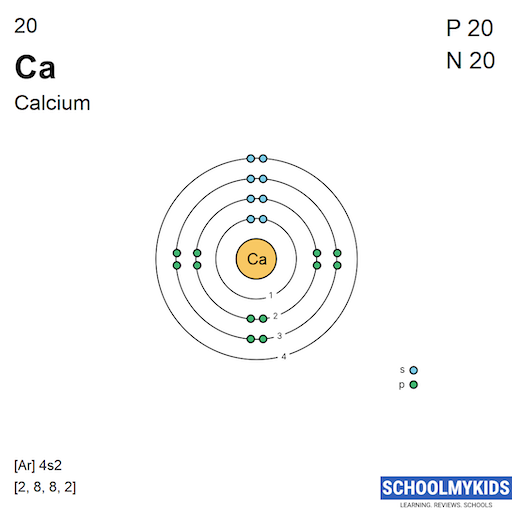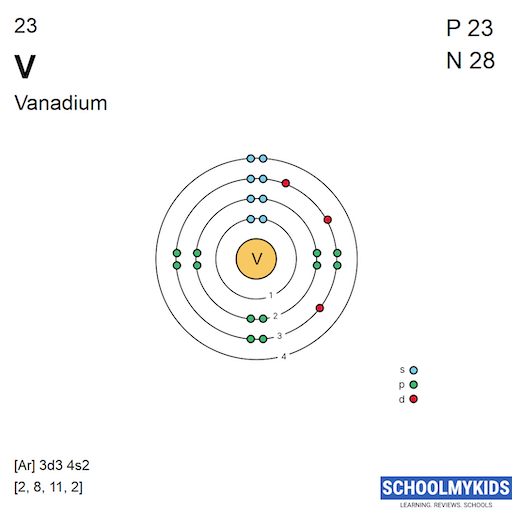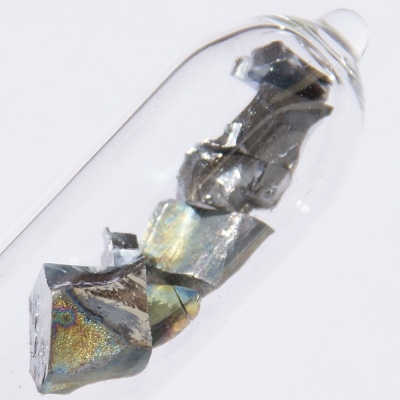Compare Calcium vs Vanadium: Periodic Table Element Comparison Table and Properties
Compare the elements Calcium and Vanadium on the basis of their properties, attributes and periodic table facts. Compare elements - Calcium and Vanadium comparison table side by side across over 90 properties. All the elements of similar categories show a lot of similarities and differences in their chemical, atomic, physical properties and uses. These similarities and dissimilarities should be known while we study periodic table elements. You can study the detailed comparison between Calcium vs Vanadium with most reliable information about their properties, attributes, facts, uses etc. You can compare Ca vs V on more than 90 properties like electronegativity, oxidation state, atomic shells, orbital structure, Electronaffinity, physical states, electrical conductivity and many more. This in-depth comparison helps students, educators, researchers, and science enthusiasts understand the differences and similarities between Calcium and Vanadium.
Calcium and Vanadium Comparison
Here's a detailed comparison between Calcium (Ca) and Vanadium (V), focusing on their position in the periodic table, physical and chemical properties, stability, and uses.
Facts - Basic Element Details
| Name | Calcium | Vanadium |
|---|---|---|
| Atomic Number | 20 | 23 |
| Atomic Symbol | Ca | V |
| Atomic Weight | 40.078 | 50.9415 |
| Phase at STP | Solid | Solid |
| Color | Silver | Silver |
| Metallic Classification | Alkaline Earth Metal | Transition Metal |
| Group in Periodic Table | group 2 | group 5 |
| Group Name | beryllium family | vanadium family |
| Period in Periodic Table | period 4 | period 4 |
| Block in Periodic Table | s -block | d -block |
| Electronic Configuration | [Ar] 4s2 | [Ar] 3d3 4s2 |
| Electronic Shell Structure (Electrons per shell) | 2, 8, 8, 2 | 2, 8, 11, 2 |
| Melting Point | 1115 K | 2183 K |
| Boiling Point | 1757 K | 3680 K |
| CAS Number | CAS7440-70-2 | CAS7440-62-2 |
| Neighborhood Elements | Neighborhood Elements of Calcium | Neighborhood Elements of Vanadium |
History
| Parameter | Calcium | Vanadium |
|---|---|---|
| History | The element Calcium was discovered by H. Davy in year 1808 in United Kingdom. Calcium derived its name from the Latin calx, meaning 'lime'. | The element Vanadium was discovered by M. del Río in year 1801 in Mexico and Sweden. Vanadium derived its name from Vanadis, an Old Norse name for the Scandinavian goddess Freyja. |
| Discovery | H. Davy (1808) | M. del Río (1801) |
| Isolated | H. Davy (1808) | N.G.Sefström (1830) |
Presence: Abundance in Nature and Around Us
Parts per billion (ppb) by weight / by atoms (1ppb =10^-7 %)
| Property | Calcium | Vanadium |
|---|---|---|
| Abundance in Universe | 70000 / 2000 | 1000 / 20 |
| Abundance in Sun | 70000 / 2000 | 400 / 9 |
| Abundance in Meteorites | 11000000 / 5200000 | 62000 / 23000 |
| Abundance in Earth's Crust | 50000000 / 26000000 | 190000 / 75000 |
| Abundance in Oceans | 4220 / 650 | 1.5 / 0.18 |
| Abundance in Humans | 14000000 / 2200000 | 30 / 4 |
Crystal Structure and Atomic Structure
| Property | Calcium | Vanadium |
|---|---|---|
| Atomic Volume | 25.857 cm3/mol | 8.3374 cm3/mol |
| Atomic Radius | 194 pm | 171 pm |
| Covalent Radius | 174 pm | 125 pm |
| Van der Waals Radius | 231 pm | - |
Atomic Spectrum - Spectral Lines | ||
| Emission Spectrum |  |  |
| Absorption Spectrum |  |  |
| Lattice Constant | 558.84, 558.84, 558.84 pm | 303, 303, 303 pm |
| Lattice Angle | π/2, π/2, π/2 | π/2, π/2, π/2 |
| Space Group Name | Fm_ 3m | Im_ 3m |
| Space Group Number | 225 | 229 |
| Crystal Structure | Face Centered Cubic  | Body Centered Cubic  |
Atomic and Orbital Properties
| Property | Calcium | Vanadium |
|---|---|---|
| Atomic Number | 20 | 23 |
| Number of Electrons (with no charge) | 20 | 23 |
| Number of Protons | 20 | 23 |
| Mass Number | 40.078 | 50.9415 |
| Number of Neutrons | 20 | 28 |
| Shell structure (Electrons per energy level) | 2, 8, 8, 2 | 2, 8, 11, 2 |
| Electron Configuration | [Ar] 4s2 | [Ar] 3d3 4s2 |
| Valence Electrons | 4s2 | 3d3 4s2 |
| Oxidation State | 2 | 2, 3, 4, 5 |
| Atomic Term Symbol (Quantum Numbers) | 1S0 | 4F3/2 |
| Shell structure |  |  |
Isotopes and Nuclear Properties
Calcium has 5 stable naturally occuring isotopes while Vanadium has 1 stable naturally occuring isotopes.
| Parameter | Calcium | Vanadium |
|---|---|---|
| Known Isotopes | 34Ca, 35Ca, 36Ca, 37Ca, 38Ca, 39Ca, 40Ca, 41Ca, 42Ca, 43Ca, 44Ca, 45Ca, 46Ca, 47Ca, 48Ca, 49Ca, 50Ca, 51Ca, 52Ca, 53Ca, 54Ca, 55Ca, 56Ca, 57Ca | 40V, 41V, 42V, 43V, 44V, 45V, 46V, 47V, 48V, 49V, 50V, 51V, 52V, 53V, 54V, 55V, 56V, 57V, 58V, 59V, 60V, 61V, 62V, 63V, 64V, 65V |
| Stable Isotopes | Naturally occurring stable isotopes: 40Ca, 42Ca, 43Ca, 44Ca, 46Ca | Naturally occurring stable isotopes: 51V |
| Neutron Cross Section | 0.43 | 5.06 |
| Neutron Mass Absorption | 0.00037 | 0.0033 |
Chemical Properties: Ionization Energies and electron affinity
| Property | Calcium | Vanadium |
|---|---|---|
| Valence or Valency | 2 | 5 |
| Electronegativity | 1 Pauling Scale | 1.63 Pauling Scale |
| Oxidation State | 2 | 2, 3, 4, 5 |
| Electron Affinity | 2.37 kJ/mol | 50.6 kJ/mol |
| Ionization Energies | 1st: 589.8 kJ/mol 2nd: 1145.4 kJ/mol 3rd: 4912.4 kJ/mol 4th: 6491 kJ/mol 5th: 8153 kJ/mol 6th: 10496 kJ/mol 7th: 12270 kJ/mol 8th: 14206 kJ/mol 9th: 18191 kJ/mol 10th: 20385 kJ/mol 11th: 57110 kJ/mol 12th: 63410 kJ/mol 13th: 70110 kJ/mol 14th: 78890 kJ/mol 15th: 86310 kJ/mol 16th: 94000 kJ/mol 17th: 104900 kJ/mol 18th: 111711 kJ/mol 19th: 494850 kJ/mol 20th: 527762 kJ/mol | 1st: 650.9 kJ/mol 2nd: 1414 kJ/mol 3rd: 2830 kJ/mol 4th: 4507 kJ/mol 5th: 6298.7 kJ/mol 6th: 12363 kJ/mol 7th: 14530 kJ/mol 8th: 16730 kJ/mol 9th: 19860 kJ/mol 10th: 22240 kJ/mol 11th: 24670 kJ/mol 12th: 29730 kJ/mol 13th: 32446 kJ/mol 14th: 86450 kJ/mol 15th: 94170 kJ/mol 16th: 102300 kJ/mol 17th: 112700 kJ/mol 18th: 121600 kJ/mol 19th: 130700 kJ/mol 20th: 143400 kJ/mol 21st: 151440 kJ/mol 22nd: 661050 kJ/mol 23rd: 699144 kJ/mol |
Physical Properties
Calcium (1.55 g/cm³) is less dense than Vanadium (6.11 g/cm³). This means that a given volume of Vanadium will be heavier than the same volume of Calcium. Vanadium is about 294.20000000000005 denser than Calcium
| Property | Calcium | Vanadium |
|---|---|---|
| Phase at STP | Solid | Solid |
| Color | Silver | Silver |
| Density | 1.55 g/cm3 | 6.11 g/cm3 |
| Density (when liquid (at melting point)) | 1.378 g/cm3 | 5.5 g/cm3 |
| Molar Volume | 25.857 cm3/mol | 8.3374 cm3/mol |
Mechanical and Hardness Properties
| Property | Calcium | Vanadium |
|---|---|---|
Elastic Properties | ||
| Young Modulus | 20 | 128 |
| Shear Modulus | 7.4 GPa | 47 GPa |
| Bulk Modulus | 17 GPa | 160 GPa |
| Poisson Ratio | 0.31 | 0.37 |
Hardness - Tests to Measure of Hardness of Element | ||
| Mohs Hardness | 1.75 MPa | 7 MPa |
| Vickers Hardness | - | 628 MPa |
| Brinell Hardness | 167 MPa | 628 MPa |
Thermal and Electrical Conductivity
| Property | Calcium | Vanadium |
|---|---|---|
Heat and Conduction Properties | ||
| Thermal Conductivity | 200 W/(m K) | 31 W/(m K) |
| Thermal Expansion | 0.0000223 /K | 0.0000084 /K |
Electrical Properties | ||
| Electrical Conductivity | 29000000 S/m | 5000000 S/m |
| Resistivity | 3.4e-8 m Ω | 2e-7 m Ω |
| Superconducting Point | - | 5.4 |
Magnetic and Optical Properties
| Property | Calcium | Vanadium |
|---|---|---|
Magnetic Properties | ||
| Magnetic Type | Paramagnetic | Paramagnetic |
| Curie Point | - | - |
| Mass Magnetic Susceptibility | 1.38e-8 m3/kg | 6.28e-8 m3/kg |
| Molar Magnetic Susceptibility | 5.531e-10 m3/mol | 3.199e-9 m3/mol |
| Volume Magnetic Susceptibility | 0.00002139 | 0.0003837 |
Optical Properties | ||
| Refractive Index | - | - |
Acoustic Properties | ||
| Speed of Sound | 3810 m/s | 4560 m/s |
Thermal Properties - Enthalpies and thermodynamics
| Property | Calcium | Vanadium |
|---|---|---|
| Melting Point | 1115 K | 2183 K |
| Boiling Point | 1757 K | 3680 K |
| Critical Temperature | - | - |
| Superconducting Point | - | 5.4 |
Enthalpies | ||
| Heat of Fusion | 8.54 kJ/mol | 22.8 kJ/mol |
| Heat of Vaporization | 155 kJ/mol | 453 kJ/mol |
| Heat of Combustion | -990 J/(kg K) | - |
Regulatory and Health - Health and Safety Parameters and Guidelines
| Parameter | Calcium | Vanadium |
|---|---|---|
| CAS Number | CAS7440-70-2 | CAS7440-62-2 |
| RTECS Number | - | - |
| DOT Hazard Class | 4.2 | 4.1 |
| DOT Numbers | 1855 | 3089 |
| EU Number | - | - |
| NFPA Fire Rating | 1 | 1 |
| NFPA Health Rating | 3 | 2 |
| NFPA Reactivity Rating | 2 | 0 |
| NFPA Hazards | Water Reactive | - |
| AutoIgnition Point | - | - |
| Flashpoint | - | - |
Compare Calcium and Vanadium With Other Elements
Compare Calcium and Vanadium with other elements of the periodic table. Explore howCalcium and Vanadium stack up against other elements of the periodic table. Use our interactive comparison tool to analyze 90+ properties across different metals, non-metals, metalloids, and noble gases. Understanding these differences is crucial for applications in engineering, chemistry, electronics, biology, and material science.

